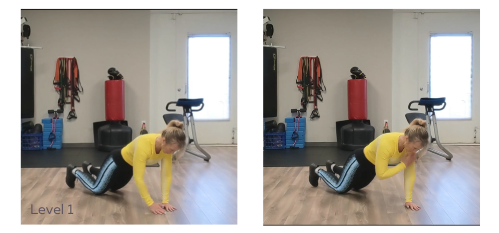April is “Be a Donor” month, which encourages organ donation. It’s simple. If you’re 16 years of age or older and are ready to sign up to be an organ donor, have your health card ready and go to https://beadonor.ca. It takes very little time to register and it is so important to so many others. You can also check whether you are already registered or update your consent. The links on the site take you to Ontario’s online organ and tissue donor registration site, instructions on how to register by mail or in-person (when COVID-19 allows it).
Why is registering to be an organ donor so important? According to the website, there are approximately 1600 people on the waiting list for a life-saving transplant in Ontario. Canada’s donation rate is 14.4 donors per million population, one of the lowest in the developing world. Ontario has donation rates of 25 donors per million. Living and deceased donor rates have stagnated since 2006; 30% of people waiting for an organ transplant in Canada die on the waiting list. You can help. Every three days, someone will die because they did not get their transplant in time. Be a donor. Save lives. Spread the word. Someday, it could be you needing help.
To give you a few examples of how organ donation has helped my friends and family, I share my sister-in-law’s story. In October 2005, Laura was not even 45 years old and was on dialysis for her failing kidneys when she received a kidney transplant. This transplant is the key reason that she has been able to see her daughters graduate from university and start their careers. She has been able to travel (pre-COVID-19) with my brother. Without her kidney donor, she would have needed to continue dialysis for as long as possible; dialysis required that she be in hospital three times a week, four hours each time. Laura is proof that transplants lengthen life.
A friend has had both kidney and pancreas transplants. She has been able to travel and continue an active lifestyle playing golf and pickleball with her friends. She is further proof that transplants improve quality of life. Another friend (and local-news.ca journalist), Rick Craven, recently received a kidney transplant from his wife Suzanne. Both are doing well as they continue to recover. My mother and mother-in-law have each lost a kidney to cancer. While we each require only one kidney, imagine if that kidney were to have problems. A transplant could be required.
Trillium Gift of Life Network is now part of Ontario Health. Trillium is overseeing and managing the transplant program for the government of Ontario, in collaboration with the Ministry of Health and Long-Term Care.
You may have conveyed your interest in being a donor when you renewed your driver’s licence. On the back of mine, it says “DONOR.” You still need to register online, even if you’ve signed a donor card. This is the only guaranteed way to make your decision known. The shortage of organs available for transplant is a serious problem. Please, register today.
And since we’re exploring organ donation, how do transplant recipients fit in the current COVID-19 vaccination plan? They’re waiting and part of Phase 2, unless they were already eligible due to their age group.
Another way to increase organ donations? Presumed consent.
Nova Scotia passed the Human Organ and Tissue Donation Act in January 2021. That made the province the first place in North America to have presumed consent for organ donation. This means that individuals who do not opt out are considered potential donors who have consented to having their organs harvested upon their death for transplantation into others. People who do not want to donate their organs have to opt out. The Nova Scotia law does not apply to people younger than 19 years of age or to those without the ability to consent for themselves.
An unscientific poll (1159 votes) done by GuelphToday.com in January 2021 asked if Ontario should implement presumed consent for organ donation like Nova Scotia. Over 69% of respondents said yes.
Presumed consent seems to be the most efficient model to maximize the number of organs available for transplant. Can we do more? Ontario is a much larger province than Nova Scotia: 14.57 million people in Ontario compared to 971,295 in Nova Scotia in 2019. A presumed consent model would require significant resources to manage the information collected, coordinate the matching process, and implement the medical maintenance, recovery, and surgery required.
Most countries that have presumed consent laws also have national healthcare or a system that combines some universal healthcare with some private care. Each has unique criteria for presumed consent. Thirteen countries that we’re aware of have presumed consent, including France (whose presumed consent legislation passed in 1976); Singapore (legislation passed in 1987); Austria, where the rate of donation quadrupled within eight years of a presumed consent policy; Belgium, where legislation passed in 1986 and where less than 2% of the population has registered an objection to organ donation; and Spain, whose legislation passed in 1979 and has the world’s highest rate of actual donation. Furthermore, data from Spain indicate that there are savings in medical costs when transplant occurs compared to keeping a patient on dialysis. On the other hand, Denmark switched from presumed consent to expressed consent in 1986 and donation rates fell by 50%.
Aside from Nova Scotia, Canada’s provinces and territories operate under the expressed consent model. It’s been over forty years since France implemented presumed consent. How are we moving forward in Ontario?
Please, register as a donor at https://beadonor.ca this month if you haven’t already!
Sources:
Hartman, J. 2012. Organ Donation: Will PEI Be the First Province to Wade into the Presumed Consent Waters? Hull & Hull LLP blog, September 26, 2012. Url: https://hullandhull.com/tag/presumed-consent/ (accessed April 12, 2021).
Reed, S., and Gross, J.A. 2019, June 25. Should there be presumed consent for organ donations? The Toronto Star. Url: https://www.thestar.com/opinion/contributors/thebigdebate/2019/06/25/should-there-be-presumed-consent-for-organ-donations.html (accessed April 12, 2021).
Zink, S., Zeehandelaar, R., and Wertlieb, S. 2005. Presumed vs Expressed Consent in the UN and internationally. Virtual Mentor: 7(9):610-614. Url: https://journalofethics.ama-assn.org/article/presumed-vs-expressed-consent-us-and-internationally/2005-09 (Accessed April 12, 2021).



